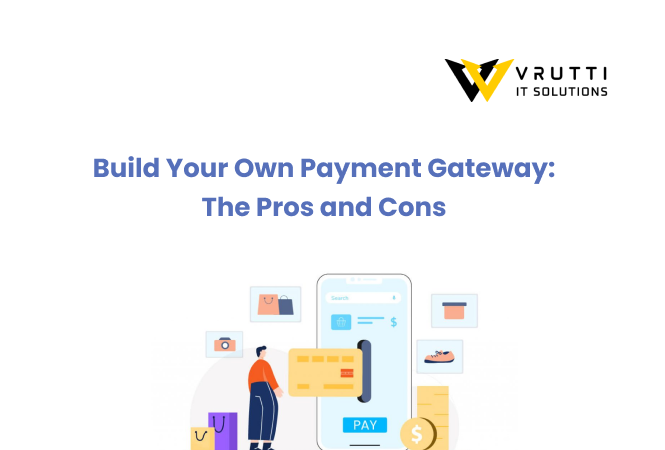Build Your Own Payment Gateway: The Pros and Cons

Build Your Own Payment Gateway: The Pros and Cons
In the rapidly evolving world of e-commerce and digital transactions, having a seamless and secure payment gateway is crucial for business success. While many opt for established third-party solutions like PayPal, Stripe, or Square, some companies consider building their own payment gateway. This approach offers more control and customization but comes with its challenges. Let’s explore the pros and cons of building your own payment gateway.
What is a Payment Gateway?
A payment gateway is a technology that facilitates online transactions by securely transmitting payment information between the customer, the merchant, and the payment processor. It handles authorization, encryption, and settlement of transactions, ensuring that payments are processed safely and efficiently.
Pros of Building Your Own Payment Gateway
1. Full Control and Customization
With a custom payment gateway, you have complete control over its features, design, and user experience. You can tailor it to meet your business needs, support multiple currencies, integrate with custom ERP or CRM systems, and offer unique payment options.
2. Cost Efficiency in the Long Run
While the initial cost of development is high, building your payment gateway can be more cost-effective in the long term. You avoid paying transaction fees to third-party providers, which can add up as your business scales.
3. Enhanced Security
Creating your own payment gateway allows you to implement custom security protocols that meet your specific requirements. You can adopt advanced encryption standards, fraud detection algorithms, and compliance measures like PCI DSS, ensuring maximum protection for customer data.
4. Brand Identity and Customer Trust
A custom payment gateway enhances your brand identity by providing a seamless and consistent checkout experience. Customers stay on your site during the payment process, increasing trust and reducing cart abandonment rates.
Cons of Building Your Own Payment Gateway
1. High Development and Maintenance Costs
Developing a payment gateway requires significant financial investment, including hiring skilled developers, securing servers, and maintaining infrastructure. Ongoing costs include updates, security patches, and regulatory compliance.
2. Complex Security and Compliance Requirements
Building a payment gateway involves strict compliance with security standards like PCI DSS. Ensuring data security, preventing fraud, and maintaining compliance require continuous monitoring, testing, and updating, making it a resource-intensive task.
3. Time-Consuming Development Process
The development process is lengthy and complex, involving multiple stages like design, coding, testing, and deployment. This could take months or even years, delaying your go-to-market strategy.
4. Risk of Technical Issues and Downtime
If not built correctly, your payment gateway may face technical issues, leading to failed transactions or downtime. This can result in loss of revenue, damage to your brand reputation, and customer dissatisfaction.
When Should You Consider Building Your Own Payment Gateway?
- High Transaction Volume: If your business processes a high volume of transactions, avoiding third-party fees can result in significant cost savings.
- Unique Business Needs: If your business model requires specific payment features or integrations that are not supported by existing solutions.
- Data Control and Security: If you prioritize data control and want to implement custom security measures beyond standard offerings.
When to Stick with Third-Party Solutions?
- Small or Medium-sized Businesses: If your transaction volume is moderate, third-party gateways are more cost-effective and easier to maintain.
- Limited Development Resources: If you lack the technical expertise or budget to build and maintain a secure payment gateway.
- Faster Time to Market: Third-party solutions offer quick integration, enabling you to start accepting payments immediately.
Conclusion: Is Building Your Own Payment Gateway Worth It?
Building your own payment gateway offers flexibility, cost savings in the long term, and enhanced security. However, it requires significant investment in development, maintenance, and compliance. Carefully evaluate your business needs, budget, and technical capabilities before making a decision.
For businesses with unique requirements, high transaction volumes, and resources to manage security and compliance, a custom payment gateway could be a game-changer. However, for startups and small businesses, leveraging existing third-party solutions remains a practical and cost-effective choice.
Final Thoughts
The decision to build or buy a payment gateway depends on your business goals, financial resources, and technical expertise. If you're considering building your own payment gateway, consult with experienced developers and ensure you meet all regulatory requirements for secure and compliant transactions.
Want to learn more about developing custom payment gateways or need help with implementation? Contact Vrutti IT Solutions today for expert guidance and tailored solutions!

